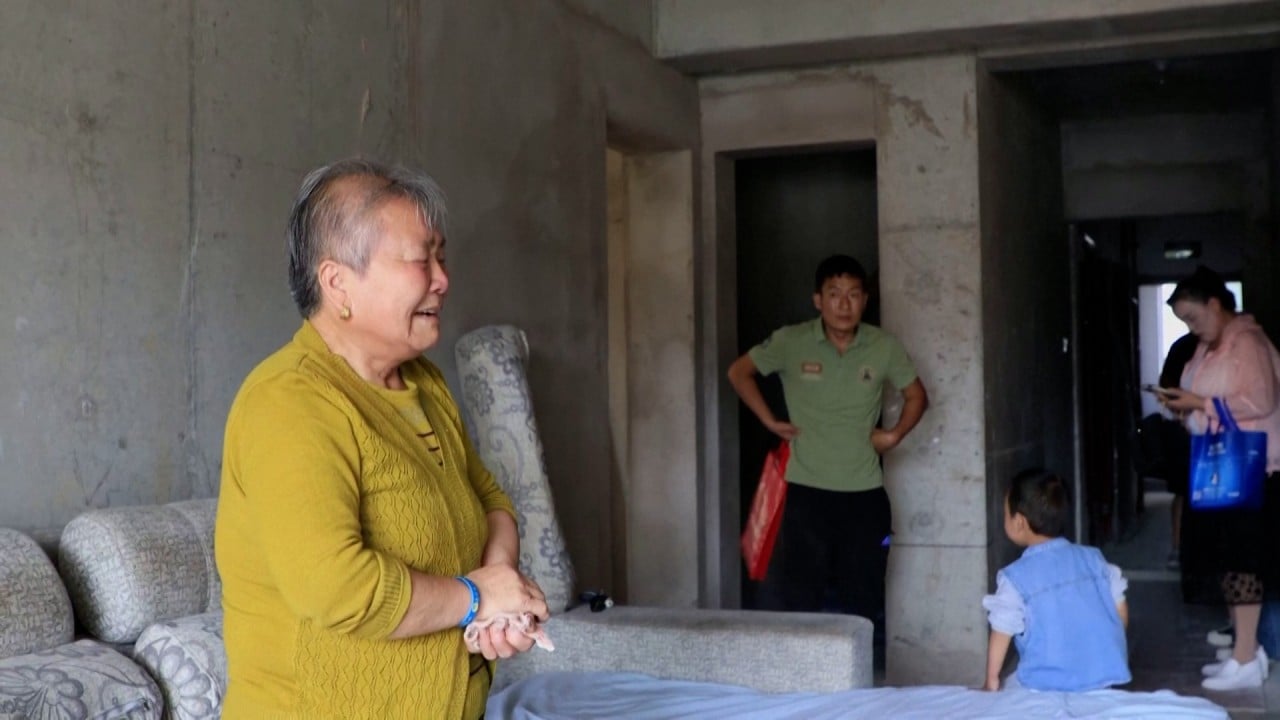
Property crisis pushes China to increase financial risk monitoring, asset disposal for troubled small banks
- Commercial banks and rural financial institutions will be helped to dispose of bad assets and loans, while also having their capital replenished through multiple channels
- Beijing is striving to establish a high-quality inclusive financial system over the next five years to increase funding for small market entities and agricultural sectors
China has vowed to intensify its risk monitoring and bad asset disposal for stressed small banks, as the ongoing property crisis triggered by Evergrande and Country Garden poses a threat to financial stability.
Authorities will help city commercial banks and rural financial institutions dispose of bad assets and loans while also replenishing their capital through multiple channels, according to a guideline issued by the State Council on Wednesday.
But in a move to prevent risk contagion, the banks have been restricted from operating outside their designated regions.
Beijing is striving to establish a high-quality inclusive financial system over the next five years to provide more funding for small market entities and agricultural sectors, although their level of bad loans and fundraising costs are stubbornly high.
After more than a decade of freewheeling growth backed by government stimulus, China’s regional banks – which are supposed to support county- and rural-level economies – have become financial burdens for local governments, while also being tarnished by allegations of corruption and excessive risk.
The coronavirus pandemic, and its subsequent restrictions, have taken a huge toll on regional finances and exposed scores of bad loans.
Small lenders are often closely connected to local governments through the companies they control, and have the most exposure to the increasingly volatile real estate sector, making them more vulnerable to economic downturns than China’s larger banks.
The average non-performing loan ratio stood at 3.25 per cent for rural banks and 1.9 per cent for city commercial banks in June, compared to 1.62 per cent for commercial banks in general, according to official figures.
Chinese investors in scramble to offload overseas property portfolios
A bank run also occurred earlier this week at branches of Bank of Cangzhou, a city commercial bank in Hebei province, as rumours spread online that it had lent a large amount to crisis-ridden real estate firm Evergrande. The bank denied it had any liquidity issues.
The central government has also stepped up efforts to regulate the behaviour of major shareholders of the small banks, pledging to crackdown on illegal financial activities.
Comprehensively promoting rural revitalisation is an important task in building a strong agricultural country in the new era
Specific reform plans to resolve risks for small banks will be customised for each province, it added.
Meanwhile, Beijing also vowed more efforts to improve the quality of inclusive financial products and services, as well as support the sustainable development of small and micro business entities, rural revitalisation and green and low-carbon development.
“[It is necessary] to focus on developing agricultural insurance, commercial pension insurance and health insurance products to support agricultural production, pension needs and basic livelihood security,” said a statement from the National Administration of Financial Regulation.
“Comprehensively promoting rural revitalisation is an important task in building a strong agricultural country in the new era. More financial resources must be allocated to the agricultural sector.”


